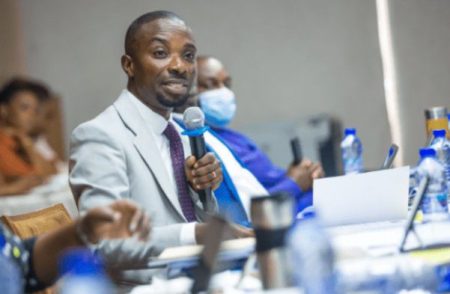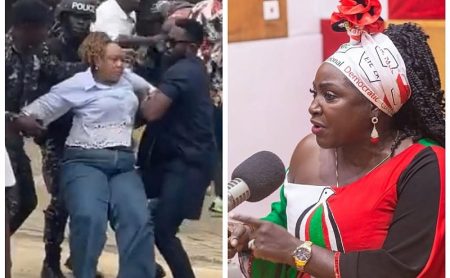The recent parliamentary rerun in Ablekuma North, Ghana, has raised serious concerns about the state of democracy in the country, with electoral violence marring the process and prompting calls for urgent action. Former Vice President Dr. Mahamudu Bawumia, the 2024 NPP flagbearer, strongly condemned the incidents, characterizing them as a threat to Ghana’s democratic foundations. He emphasized that such acts of violence have no place in a democratic society and warned that failure to address them decisively could establish a dangerous precedent, potentially undermining future elections and eroding public trust in the electoral process. The violence witnessed during the rerun included attacks on NPP supporters and officials, notably former Fisheries Minister Hawa Koomson and the party’s deputy national organizer, raising questions about the adequacy of security measures and the neutrality of law enforcement.
Dr. Bawumia’s criticism specifically highlighted the apparent inability of the police to protect individuals from these attacks, despite their presence at the polling stations. This raises concerns about the capacity and willingness of law enforcement agencies to effectively maintain peace and security during elections, a cornerstone of a free and fair electoral process. He underscored the importance of holding perpetrators accountable, urging the President and relevant authorities to investigate the incidents thoroughly and prosecute those responsible. This, he argued, is essential not only for addressing the immediate violence but also for sending a clear message that such behavior will not be tolerated in future elections. The call for accountability underscores the need for a robust and impartial judicial process to address electoral violence and ensure that those who perpetrate it face the consequences of their actions.
The violence in Ablekuma North underscores a broader challenge facing Ghana’s democracy. The incidents highlight the vulnerability of the electoral process to disruption and intimidation. A peaceful and transparent electoral process is crucial for maintaining public trust in democratic institutions and ensuring the legitimacy of elected officials. When violence disrupts voting or influences the outcome, it undermines the fundamental principles of democracy and can lead to instability and conflict. Addressing this challenge requires a multi-pronged approach, including strengthening security measures at polling stations, promoting political tolerance and peaceful campaigning, and ensuring that law enforcement agencies act impartially and effectively to prevent and respond to violence.
The specific instances of violence recorded during the Ablekuma North rerun were particularly disturbing. At St. Peter’s Polling Station, voting was halted for several hours due to a violent invasion by thugs who assaulted several individuals, including journalists covering the proceedings. This attack on journalists is particularly troubling, as it represents an assault on the freedom of the press and the public’s right to information. Journalists play a crucial role in holding power accountable and ensuring transparency in the electoral process. Attacks on journalists not only impede their ability to report on events but also create a chilling effect, discouraging critical coverage and potentially allowing electoral malpractice to go unchecked.
Furthermore, a separate incident involving a police officer assaulting a journalist at another polling station was captured on video and widely circulated, further highlighting concerns about the conduct of law enforcement. While the officer in question was subsequently interdicted, the incident underscores the need for better training and oversight of security personnel deployed during elections. Police brutality and intimidation can undermine public trust in law enforcement and create an environment of fear and insecurity, discouraging participation in the electoral process. It is crucial for authorities to ensure that security forces act professionally and respect the rights of all citizens, including journalists.
The Electoral Commission’s decision to schedule the rerun in 19 polling stations stemmed from irregularities in the verification of results from the 2024 elections. This highlights the importance of robust procedures for verifying and certifying election results, ensuring the integrity of the vote count. Any perceived flaws in the verification process can undermine public confidence in the electoral system and create opportunities for disputes and challenges. The Electoral Commission must prioritize transparency and accountability in its operations, ensuring that all stakeholders have confidence in the accuracy and integrity of the election results. The incidents in Ablekuma North underscore the urgent need for comprehensive electoral reforms and a renewed commitment from all stakeholders to ensure peaceful and transparent elections in Ghana. Addressing the underlying causes of electoral violence, promoting political tolerance, and strengthening the capacity of institutions to prevent and respond to such incidents are crucial for safeguarding Ghana’s democratic future.














